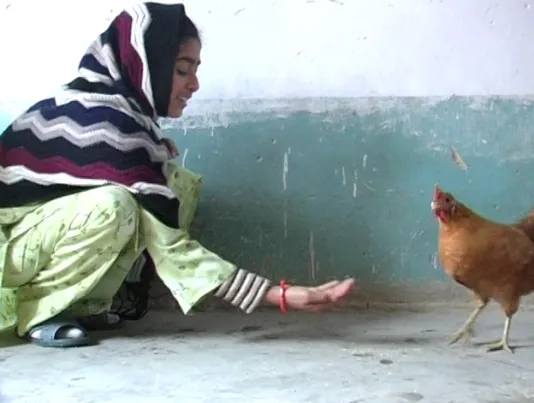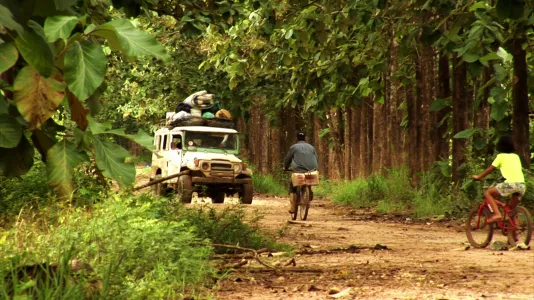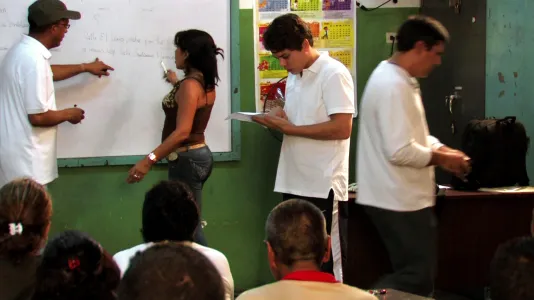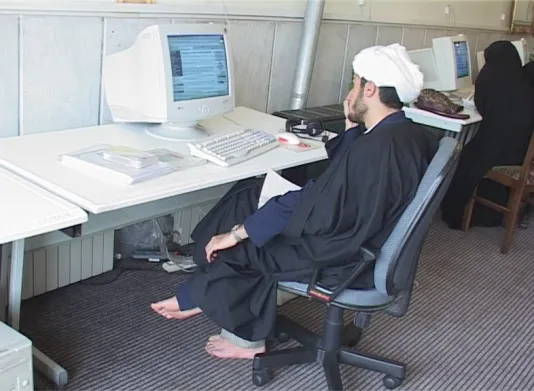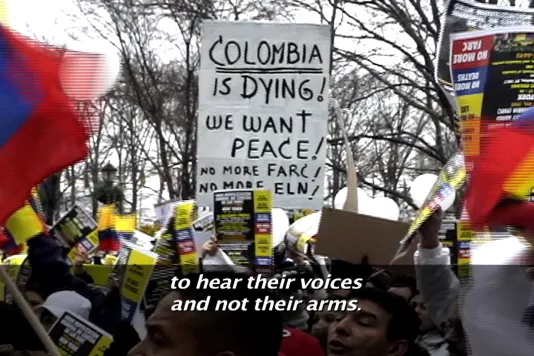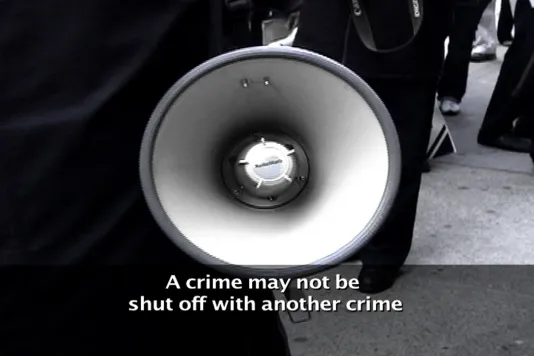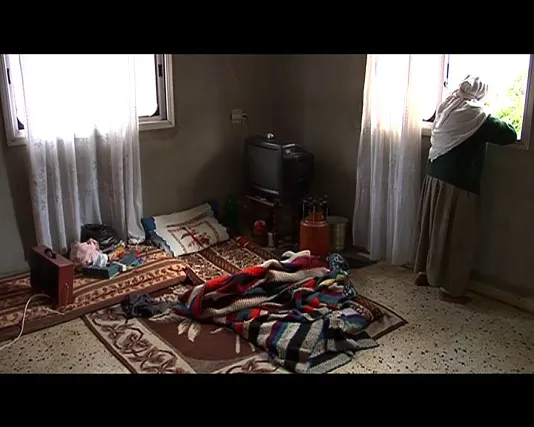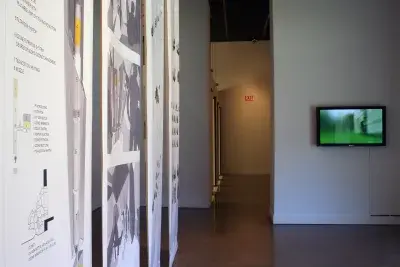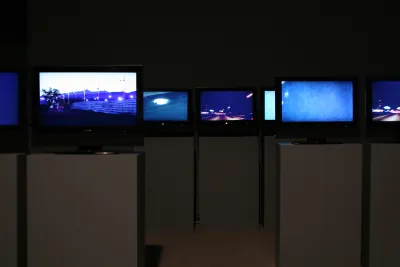Video still, Dario Azzellini and Oliver Ressler, Comuna under Construction, 2010. 94 min. Courtesy of the artists.
Kabul, Jenin, Tehran....

The MIT List Visual Arts Center is pleased to announce Kabul, Jenin, Tehran… a program of recent video work addressing issues of political and documentary representation, often overlooked by mainstream media.
Focused on sites of conflict and resistance—the Colombian armed conflict, postwar Afghanistan—as well as the politics of transparency and representation—the Palestinian refuge camp, the Consejo Comunal—the series includes films by Bodil Furu and Beate Petersen (Norway), Dario Azzellini and Oliver Ressler (Venezuela/Austria), Reza Haeri (Iran), Carlos Motta (Colombia/U.S.), and the Otolith Group (U.K.).
Kabul Ping Pong (2005, 43 min.) by Bodil Furu and Beate Petersen (Norway)
Screening Times: 12–12:45, 3:35-4:15
Today’s Afghanistan is in a void between two eras. In 2005, when Kabul Ping Pong was made, over two decades of war seemed to be drawing to a close; on October 9th, 2004, the first democratic election took place after a two-year interim administration installed by the U.S. But when the battle between internal and external enemies is more or less brought to an end, the question becomes how to define oneself positively: as a nation, as a culture, as a people? On which ideas shall the future be based? Which stories and common beliefs can keep a nation together? From where can they choose their role models? How can the traumas of war be overcome? The film presents three people who approach these questions in different ways. Afghanistan’s Minister of Foreign Affairs, Abdullah Abdullah is living with the memories of the brutal assassination of Ahmed Shah Massoud. Parwana Hakim, a gifted girl of 12, is missing Pakistan and a better school system. The newspaper editor of Kabul Weekly, Fahim Dashty, is marked by the traumas the war has induced. The documentary focuses on the strategies these people are using to define themselves, and a new civil society, after years of war.
Imamzadeh Internet (2004, 26 min.) by Reza Haeri (Iran)
Screening Times: 12:45–1:15, 4:15–4:45
In the southern neighborhoods of Tehran, right next to the mausoleum of Imam Yahya, there is an Internet café, that attracts the young and the old. This is the starting point for a documentary about the impact of this technological phenomenon on Iranian culture and society. We travel from the crowded streets of Tehran, to the small village of Shahkooh, and the religious city of Qom, where young clerics and soon-to-be mullahs are busy connecting to the Web. We meet students, intellectuals, and members of the Islamic parliament, and hear their views on chat-rooms and sex talk, and the bigger issue of “Iran and the West.”
Where Do I Stand? (2008, 8 min.) by Carlos Motta (Colombia/US)
Screening Times: 1:15–1:25, 4:45–4:55
Where Do I Stand? documents the polarized political situation in Colombia through the lens of two recent protests against violence: one against the Armed Revolutionary Forces of Colombia (FARC), the other against state violence and the Paramilitaries. Both marches took place in several cities around the world; those viewed in this film took place in New York. The central question in this work is a larger inquiry into the formation of individuals within the frame of ideological manipulation, and of violence from the state or insurgent groups.
Nervus Rerum (2008, 32 min.) by Otolith Group (UK)
Screening Times: 1:25–2:00, 4:55–5:30
Nervus Rerum, latin for “the nerve of things,” is a film essay by the London-based Otolith Group on the Jenin refugee camp in the Palestinian Occupied Territories. Juxtaposing imagery of the West Bank camp, whose refugees are afforded no political rights or means of representation, with poetic and literary narration drawn from the writings of Genet and Pessoa, the film blurs the boundaries between fact and fiction, opacity and transparency, while critically addressing the representation of a population confined within a decades-long occupation.
Comuna under Construction (2010, 94 min.) by Dario Azzellini and Oliver Ressler (Venezuela/Austria)
Screening Time: 2:00–3:35
“We have to decide for ourselves what we want. We are the ones who know about our needs and what is happening in our community,” Omayra Peréz explains confidently. She wants to convince her community, located on the hillside of the poor districts of Caracas, to found a Consejo Comunal (community council). In more than 30,000 Consejos Comunales, Venezuelans decide on their concerns collectively through assemblies. By local self-organization from below several working groups have been established on self-decided topics, and decisions are made in assemblies. The film Comuna under Construction follows these developments throughout the hillside of the shantytowns of Caracas and the vast and wet plains of Barinas in the countryside, showing the viewer the intentions of the formation of a Consejo Comunal and its consequences.
Sponsors
Funding for this program has been generously provided by MIT’s Committee on Race and Diversity, the Council for the Arts at MIT, and the Massachusetts Cultural Council.
